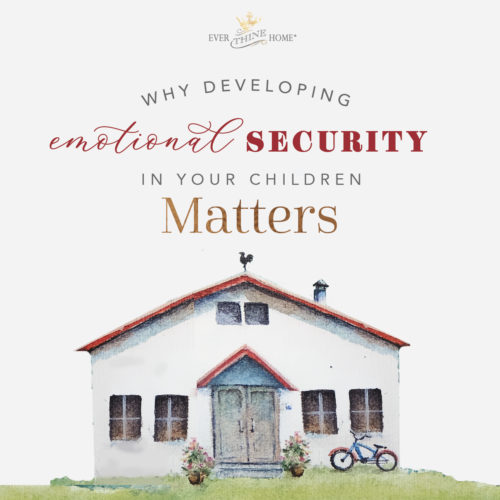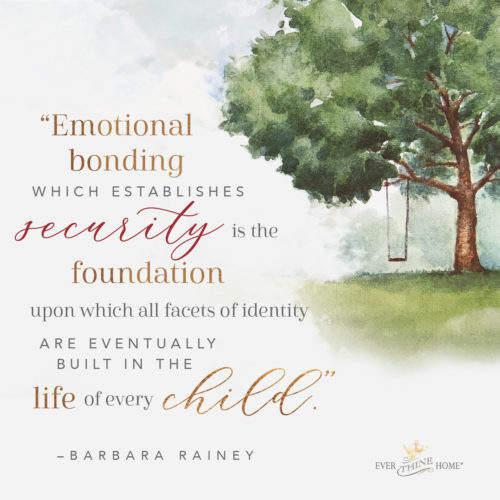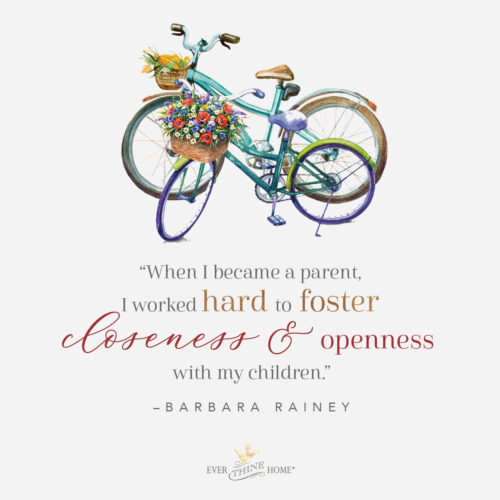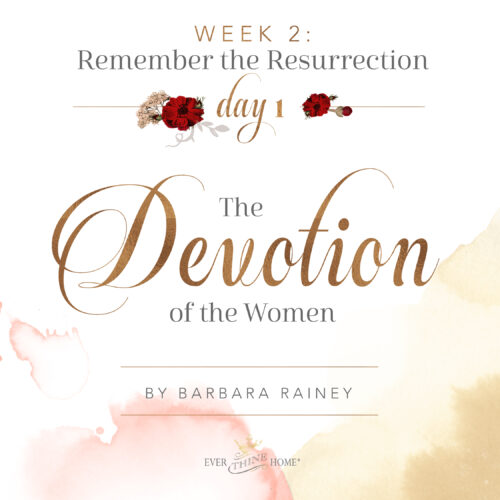
The room was small, dark, and silent. Stepping inside we saw three walls lined with baby cribs each occupied by a tiny baby. In the back corner a disengaged caregiver lifted her eyes in our direction. The babies were alone. Unattended. Silent.
Our daughter Laura and I were part of an overseas medical mission team working for a week in an orphanage, home to hundreds of abandoned babies and children, most with physical disabilities or medical conditions their parents were unable to provide for them.
Most of the nonmedical members of our team were assigned to assist the American doctors in our group. But another woman, Lynn, and I asked if we could go to the baby room and just take care of babies all day, every day. For the next week we gave our hearts to these babies, snuggling them close while giving them bottles instead of letting the feeding happen as it normally did—with the bottle propped up on a rolled rag, much of the milk escaping the baby’s mouth and soaking into the bedding.
The smallest baby drew my heart instantly. I was amazed to discover she was six weeks old, as she weighed barely five pounds, having been born a preemie. Lethargic and sleepy, she seemed so vulnerable and alone. I held her as often as the workers would let me. Lynn and I named some of these little ones that week since we couldn’t speak their native language. I named this littlest one Sarah. I prayed for her life during the day when I was with her and at night back in our hotel.
By late in the week Lynn and I had a routine. On Thursday as usual, we arrived at the orphanage we went straight to baby room. My feet went straight to my tiny Sarah. Even in the dim lighting something didn’t seem right. I bent over her, put my hand on her tiny chest and discovered it was barely moving.
I ran to find our American doctor, who began the process of reviving her and then raced her to a hospital, where she completely recovered. Sarah’s needs, physical and emotional, had been ignored. Neglect nearly ended her life.
Quite miraculously, baby Sarah was adopted months later by one of the doctors on our medical team. She is now a thriving, healthy teenager, about to graduate from high school.
Little Sarah’s physical heart almost stopped because her emotional heart, the soul of who God made her to be almost gave up. Without a personally invested parent to both feed her body and love her, she failed to thrive and would have died had God not providentially led us there.
Emotional bonding which establishes security is the foundation upon which all facets of identity are eventually built in the life of every child. How we feel about ourselves—loved or unloved, competent or incompetent, empowered or shamed—will impact our emotional foundation and future. Emotional health also strongly supports the development of a child’s character, natural gifts, intelligence, and relationships.

In her book, Children Learn What They Live, Dorothy Law Nolte wrote with great insight about the impact of a child’s upbringing:
If children live with criticism, they learn to condemn…
If children live with fear, they learn to be apprehensive…
If children live with ridicule, they learn to feel shy…
If children live with encouragement, they learn confidence…
If children live with acceptance, they learn to love.
Like Sarah we are all kept alive by a heart that beats constantly, regularly, and quietly. But we also have a nonphysical heart in which resides our emotions, our thinking, and our decision-making or will. What we feed this heart shapes our child’s emotional identity.
Jesus spoke often of our heart:
- Matthew 14:27: “Jesus spoke to them, saying, ‘Take heart; it is I. do not be afraid’” (emotion).
- Matthew 9:4: “Jesus, knowing their thoughts, said, ‘Why do you think evil in your hearts?’” (thinking).
- Matthew 19:8: “He said to them, ‘Because of your hardness of heart Moses allowed you to divorce your wives’” (will).
In fact, God speaks of our hearts hundreds of times, from the first to last pages of the Bible. Two verses summarize this most important part of our in-His-image likeness, our hearts.
“For the Lord sees not as man sees: man looks on the outward appearance, but the Lord looks on the heart” (1 Samuel 16:7, emphasis added). God supremely values the choices we make internally in that hidden space inside each of us called the heart.
“You shall love the Lord your God with all your heart and with all your soul and with all your mind” (Matthew 22:37). God supremely values where we place our affections, our emotions, which also spring from our hearts.
For a child to feel secure and stable, to become emotionally healthy as an adult, is to know he is loved and cared for by those who have the power to do good to him. And for Christian parents it’s important to communicate the high value built in each of us as made-in-His-image children.
In the formative growing-up years, this responsibility of forming emotional health begins with and rests on parents.
Then, as children become teens and young adults, they need to begin to look for and experience their security and love needs in God Himself.
From birth, children pick up on the emotions of their parents—responding to warm welcoming hugs, kisses, and love lavishly given, or responding in bewilderment and fear, building early defense mechanisms to protect from a lack of parental love and presence. To be honest, most of us have probably been shaped in an environment marked by both types of emotional influences.
I grew up in a family that was secure and stable, and I knew I was loved. I never feared my parents would divorce or leave us. They cared for us, provided for us, and taught us many valuable lessons about life.
But what my head knew was true I did not always feel. My parents both grew up in families who experienced significant losses—the death of a child, the relentless hurtful attitude and comments of a mean father-in-law, the dissolution of a marriage, and difficult life struggles during the depression and World War II. As I looked back, it’s remarkable that my parents raised me and my brothers as well as they did.
I remember I often felt insecure about myself by the time I was nearing my teen years. I also remember working hard to please my parents. I wanted to make sure my dad had no reason to be angry with me. I became stoic and subdued, never getting angry, but not expressing much happiness, either. I did not laugh often, and I rarely cried. All those emotions were a part of me, but were hidden deep within as I sought to please others.
As a teenager, I didn’t know who I was or how I fit in. I became increasingly shy, timid, reserved, and self-protective. As a 19-year-old college student, I understood the gospel for the first time, and my sense of self and purpose changed dramatically.
When I became a parent myself, I worked hard to foster closeness and openness with my children. I snuggled with them on the couch reading books, even in their teens. I welcomed happy and hopeful creativity in spite of the messes they left in their wake. It was fairly easy in those early years.

But as our children got older, I saw that I was often reacting to or retreating from them out of fear because I didn’t how to nurture emotional health in teenagers. I still had toddlers when my oldest two became teenagers. I recognized how easy it was for me to kiss the little ones, stroke their faces, and cuddle them. But it was much harder for me to be affectionate with my 13-year-old daughter and 12-year-old son.
Ashley, our firstborn, noticed and made little snide comments about how I was spoiling the younger ones, giving them too much attention. I remember thinking at first, “It’s okay that I am not as close to the older ones. That’s just who I am. Besides, Dennis is very good with our teens.” I figured I could concentrate on the younger kids, he could concentrate on the older ones, and everything would be just fine.
Eventually I understood our daughter’s criticisms were her way of letting me know that she still desired my affection and nurturing. I made a commitment to myself and asked the Lord to help me strengthen my emotional connection with my teenagers. I remember going into Ashley’s room to hug her real tight, even though it felt awkward to me because I had not received similar affection when I was a teenager.
I also realized that by meeting her needs emotionally at home, I was helping to protect her from getting her emotional and security needs met from others, especially boys. It was like a light went on and I understood, If she does not get love and security from me and her dad, then she is going to have a vacuum in her heart that she will seek to fill with unhealthy relationships.
A good question to ask yourself is, “Do my children feel love from me, or do they just know that I love them?” There is a big difference. They need to feel loved and cared for in a real, emotional, intimate way that only comes from affectionate touching and physical closeness.
Do you want to raise emotionally healthy and stable kids? Here are some questions for you to ask yourself and God to help you evaluate how you are doing. You will likely have to think about it for a while to see the real truth.
- How is the background of your childhood impacting your own children?
- What are you unconsciously replicating?
- Ask God to open your eyes to see what your kids are feeling deep inside.
- Ask Him to help you listen closely to what they say or how they act that night be signals to you.
Here is a prayer for you as a mom or dad who knows you aren’t doing it all right, who wants to do the best you can for your kids because you love them. God knows, understands and wants to help you.
My heavenly Father,
You are the perfect parent
and I am not.
You know my flaws and faults
while I’m blind to many of them.
Help me see what you see in me
and help me trust you more.
Give me eyes to see my children as you do
with Your eyes, Your heart.
Give me Your patience, Your love, Your grace.
Help me most of all to love them well
in ways that say love to their little and teenage hearts,
to nurture and help them become emotionally stable and mature.
And last,
Lord help me guide them to You
the One who loves perfectly,
who has a unique and good plan for their lives.
God You alone can give them
what we moms and dads can’t.
Amen.
In my next blog post: Teaching your children how to name and express their emotions.
If you enjoyed this post by Barbara, you might be interested in these other posts on parenting:






Very pertinent to today’s issues and challenges. Thank you for writing.
I am so thankful for this article. It is so helpful. Thank you!
I can appreciate your article very much, relating to a lot of it. Especially the “showing the love” versus the “saying I love you”. I don’t think I showed it as much as I said it.
I now have 7 grandchildren from our 3 children, and 6 great grandchildren. I’m seeing that I have been guilty of “saying” more than I am of “showing” with them as well. I’ve been praying for that to change and it is, slowly but surely.
God is so good. God bless you in your writings. They are touching many lives.
I so identify with this article. I had two daughters that had very different personalities than me I loved them but I couldn’t identify with them. My son had my personality but that caused problems with him and his father because they didn’t understand each other. We both tried to be good Christain parents to our children. I wish I could had read this article when they were little. But thankfully young mothers can read it now. God bless you Barbara.